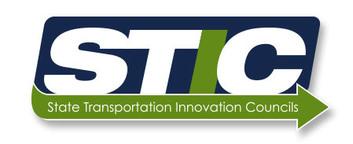May 30, 2014
Innovation of the Month: State Transportation Innovation Councils
State Transportation Innovation Councils across the country are using the Federal Highway Administration's STIC incentive program to help cover the cost of making innovations standard practice.
The council made up of public and private transportation stakeholders in each stat are using the incentives on a variety of projects:
- The Vermont STIC, for example, is funding a project to institutionalize the design-build contracting method. The Vermont Agency of Transportation has used design-build on five bridge projects and has another in procurement. After relying on a small team to implement design-build on early projects, the agency is documenting key design-build processes and procedures so they can be used consistently throughout the agency.
- The North Carolina Department of Transportation is pursuing a local government agency certification initiative. The first phase of the certification program requires local agencies to become prequalified so they understand what's involved in delivering local Federal-Aid projects. The agency is using STIC funds to help design, develop and implement the prequalification phase of the program.
- The Michigan STIC requested STIC incentives to develop a report on a pilot project to collect and maintain geospatial data identifying the location of underground utilities in Michigan Department of Transportation rights-of-way. The pilot project is part of an effort to make it standard practice to capture utility location information at the time of installation.
Each state STIC can apply for up to $100,000 a year to carry out projects that mainstream innovative practices. FHWA division offices in each state can provide details.
Secretary Foxx Makes Magazine's "Most Creative" List
U.S. Transportation Secretary Anthony Foxx is on the list of Fast Company's "100 Most Creative People in Business 2014" for his focus on modernization. Among the accomplishments the magazine cites is his leadership on streamlining the environmental impact review process to reduce approval time on transportation projects. Other achievements the magazine notes are guiding U.S. Department of Transportation approval of collision-preventing vehicle-to-vehicle communications, expanding passenger use of electronic devices during plane flights and issuing a call for innovative tools and apps that use U.S. DOT data to address safety, transportation access and traffic management challenges.
Pennsylvania STIC Plans Safety Symposium

The Pennsylvania State Transportation Innovation Council will host the Pennsylvania State Safety Symposium on June 10 in Harrisburg. This statewide event will feature panels of legislators, safety experts, researchers and others discussing transportation safety policy issues. Topics include seat belt laws, ignition interlocks for impaired-driving offenders, automated speed enforcement in construction zones and safety for young drivers. The symposium is one of many initiatives generated by the STIC, chaired by Pennsylvania Transportation Secretary Barry Schoch and FHWA Pennsylvania Division Administrator Renee Sigel.
Washington Expecting Design-Build Proposals for Slide Area Repair
The Washington State Department of Transportation is expecting design-build proposals by the end of May for permanent repairs on a section of State Route 530 damaged in a March landslide. The agency plans to start work on the project in early June and have the road completely open to traffic in October. The design-build contractor will be expected to rebuild the road under traffic because a detour around the slide area is slated to end in June. A contractor began removing debris from the road in May. Washington State DOT officials said that with about half of the road cleared, most of the surface appears to be intact with about 160 feet destroyed.


